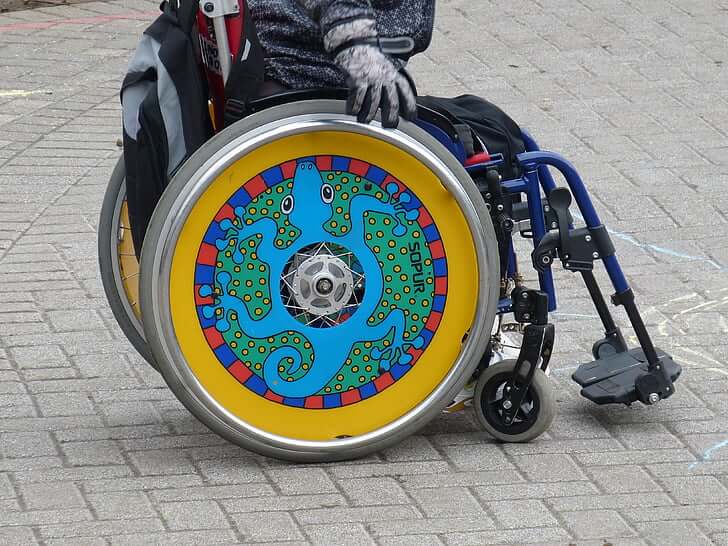An upcoming Continuing Disability Review can be a time of anxiety for many people receiving disability benefits. If you don’t pass the review, it’s possible that your Social Security Disability Insurance (SSDI) benefits could be discontinued. But why might the Social Security Administration (SSA) take away your benefits?
SSA may discontinue your disability benefits if they find that: (1) your medical condition has improved; (2) you’ve returned to work; (3) your volunteer work falls under substantial gainful activity (SGA); (4) you’ve been imprisoned.
Keep reading below for more information.
What to Know About Continuing Disability Reviews
Continuing Disability Reviews (CDR) are assessments that are intended to examine disability beneficiaries to make sure that they still qualify for the benefits they are receiving. The schedule of CDRs varies based on the applicant’s medical condition and other factors like age.
The purpose of a CDR is for the SSA to review all of the medical information. It might also involve the consultation of a vocational expert or doctor that works with the SSA.

Understanding Continuing Disability Review Forms
The onus is on the SSA to demonstrate that you’re no longer disabled. It will ask for and examine recent medical data to reach that conclusion. At least one of the following conditions must be met for the SSA to stop paying benefits:
Either the claims examiner or a vocational specialist finds that you can now undertake a substantial gainful activity or that your ability to work, compared to your level of disability, has increased since your application.
SSA-455
Before a CDR takes place, you will receive Form SSA-445 from SSA which will require you to fill in the latest information about your condition. This form is also called the Disability Update Report.
Although this form normally asks for information pertaining to the last 24 hours, it might specify another duration of time, so make sure to read carefully. The report requests information on the following:
● Your job history and monthly income
● Your capacity to return to work;
● Any improvements in your health
● Whether you have ever been hospitalized or seen a doctor for treatments of any kind, as well as the reason for such appointments
When filling out the Disability Update Report, pay special attention to Section 2. This section requests a third-party reference that can give some input during the evaluation. If the SSA has taken away your benefits, it’s likely the information from this third party was not adding up to your claims, among other things.
When deciding who to list in the report, make sure to choose among your trusted friends who you see very frequently. The logic behind this is that a friend you meet only once in a while or you are not that close with will likely see you on your good days when you are feeling a bit better than your normal state.
When asked about your day-to-day condition, they will base their account and observation on this. This might give the impression that your health has improved or is improving.
You must submit your disability report within 30 days of receiving it; otherwise, SSA has the right to stop your benefits.
SSA-454
After you submit the SSA-455, the SSA will mail you a Continuing Disability Review Report, also known as the SSA-454. This usually happens within 90 days of determining whether your SSDI payments will be continued or if a further medical evaluation is required.
There is not much difference between the two forms, as they ask for similar information. This includes information about your medical records, details of your current physician and hospitals, and any new medical records since the time of your last review.
Of course, the SSA will also ask the hospital for this data, but you can speed up this procedure by providing it yourself.
Even though it is lengthy, the form is quite simple to fill out. You can follow these suggestions below to increase your likelihood of continuing to receive benefits:
Include the medical ailment or conditions that resulted in the determination of your impairment first in Section 3 of the form when describing your health. Then, detail any health issues that have emerged since your previous CDR.
The same holds true for finishing Section 4 concerning medical care. When listing the treatments you have taken, begin with those related to your major disability before moving on to treatments related to new medical problems.
Section 9 will ask you to describe what your day-to-day life is like and whether you have difficulty with particular chores. You must describe this in detail in relation to your worst days.
Be as detailed as possible. Don’t give simple yes or no answers. Refrain from using generalizations.
Instead of saying, “I have difficulty getting ready in the morning,” say, “5 out of 7 mornings, it takes me 30 minutes to get out of bed, brush my teeth, and wash my face.”
Remember that more than 90% of CDR cases are granted for continuous benefits, even though the process might be frightening and overwhelming.
Can They Take Away My Social Security Disability Benefits?
The SSA can absolutely end your SSDI benefits after a CDR. The program is meant to help those who suffer from a disability and are unable to stay employed or find jobs that they can do.
But since the system is under-resourced, the SSA makes sure that SSDI benefits are only provided to those who really need them.
4 Reasons Why SSDI Benefits Could Be Discontinued

The following are 3 common reasons why the SSA discontinues disability benefits:
Your Condition Has Improved
If the medical or mental condition that has been affecting your ability to work has been found to have improved, then the SSA will stop your benefits. This is because the SSDI is a program that caters to people who have a disability that prevents them from working.
This is why the SSA will evaluate your case time and time again to make sure that you still qualify for benefits. However, it might put your mind at ease to hear that the standards that CDRs follow are usually less rigorous than when your initial disability application is being reviewed.
This increases the chance that you will continue to receive benefits as long as you are still disabled.
You Return to Work
Before we explain this point, it’s important for you to understand what Substantial Gainful Activity (SGA) means.
The SSA considers someone to be doing a substantial gainful activity if, in 2023, they earn $1,470 per month ($2,460 if the person is blind). If you go back to work and reach this earnings threshold, it’s possible to lose your SSDI benefits.
But if you earn less than that, it doesn’t always mean that you are in the clear. If you’re doing work with fewer duties and hours and pay is a significant amount (say, $500), the SSA might still cancel your payments. This only happens when the SSA reviews your job duties and finds that you have no limitations on doing SGA.
If you wish to return to work but are unsure of its implications or whether you are still able to do so, the good news is that SSA offers a work incentive to beneficiaries called the “Ticket to Work” program.
There is a trial work term in this free and voluntary program. Regardless of how much money you make at this new job, you would continue to get your full SSDI payments throughout this time period. Under this program, you can consider the idea of returning to the workforce without putting your financial security at risk.
The trial work term lasts until you’ve worked nine months during a five-year span. (The months do not have to follow one another.) If a monthly income exceeds $1,050 (in 2023), that month is considered a trial work month.
Another program that is offered by the SSA is called the Extended Period of Eligibility (EPE). This program is available to applicants after they complete the Ticket to Work program. It lasts for a total of 36 months. You will continue to receive SSDI benefits as long as your earnings are below the SGA and you have a debilitating condition.
In the event that your earnings exceed the SGA limit, your SSDI benefits will continue for another two months. However, if you find yourself unable to work once again or your income falls below the SGA limit, you can restart your benefits without applying for SSDI from scratch.
Be careful not to endanger your benefits before attempting to return to work. If you want to try things out while keeping your benefits secure, think about signing up for the “Ticket to Work” program.
Your Volunteering Falls Under SGA
Volunteering might sound like an odd reason to lose your SSDI benefits over. But it is possible!
The basic premise is that even though you are not earning any income through volunteer work, the SSA might still consider this work SGA. This would lead them to conclude that you are no longer disabled, effectively discontinuing your disability benefits.
The good news is that this does not mean you must quit your volunteer work. Volunteering can be a source of fulfillment and connection for many people.
Think about the type of volunteering you enjoy doing. The SSA is more likely to object to certain volunteer positions than others. SGA can include, for instance, volunteering for tasks like stocking shelves at a food pantry or handling the books for a non-profit organization. Consider volunteering in the following programs if you can:
● Volunteers in Service to America
● University Year for ACTION
● Foster Grandparent Program
● Service Corps of Retired Executives
● Active Corps of Executives
● Special Volunteer Programs
Can You Lose Your SSDI Benefits If You Go to Jail?

If a SSDI beneficiary is formally convicted of a crime, their benefits will stop after 1 month of conviction and resume once they get released.
Be aware that committing certain felonies, such as deceiving the SSA, will result in your benefits’ immediate and permanent termination. Any attempts to defraud them are vigorously investigated by the SSA, which then files charges.
Can I Appeal the SSA’s Decision?
If you get a notice from the SSA that implies that your disability benefit has been terminated, don’t worry, not all is lost. You can challenge the SSA’s decision by making a formal appeal.
But be quick! If there is a delay between the time you received the notice and your appeal, you will be required to justify this delay. Plus, the SSA will have the right to reject your justification if the delay is longer than 60 days.
Meeting the 60-day deadline can expedite and simplify the procedure instead of relying on an extension (which is not really guaranteed.)
If you are able to respond to the notice within 10 days of its receipt, you can additionally request the SSA continue paying you your regular disability payments throughout the legal process. Of course, you can request this after the 10-day period, but it will be more complicated.
It can prove beneficial to work with an attorney when you decide to file an appeal. An attorney can work to ensure that you avoid the typical blunders that most beneficiaries make when filing an appeal. Remember that filing for an appeal is a complicated process that involves additional information and experience.
Is It Difficult to Pass a CDR?
As mentioned previously in this article, the standards for evaluation used in a CDR are less rigorous than those used when the initial application is being examined. In fact, the SSA has found that Social Security Disability benefits continue for 95% of the CDRs that take place.
Usually, termination of benefits only happens if the SSA has found either of the following:
● The beneficiary’s medical condition has improved in a way that allows them to work.
● The beneficiary is able to engage in substantial gainful activity.
Conclusion
An upcoming CDR can be scary. But there is not much to worry about, because there are specific reasons why the SSA can take away your social security disability. If you don’t meet that criteria, your benefits are likely to continue.





